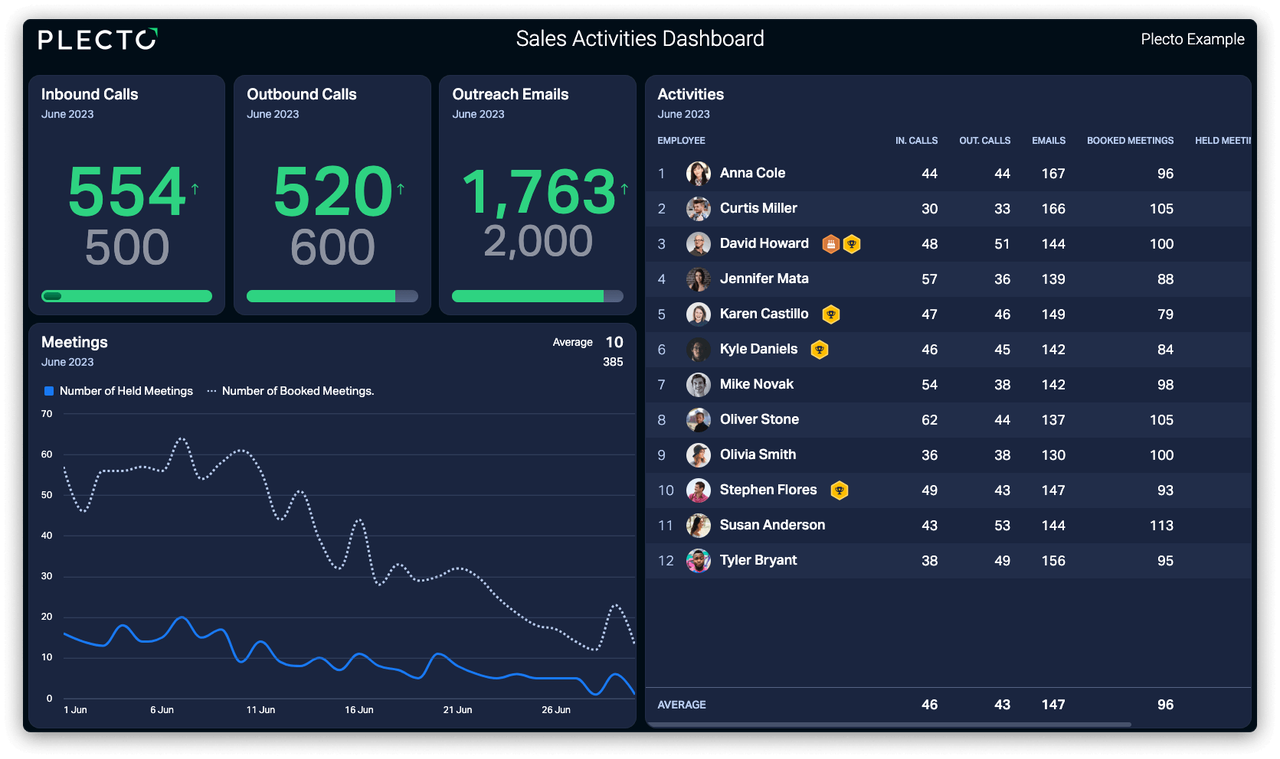When you put time and money into advertising and promoting your product, service, or brand, the goal is to bring people into your sales funnel. But, actually understanding prospects and their needs is key to building solid business-client relationships. Once you have people interested, what do you do next? Knowing the next steps and how to execute them is an essential way to convert leads into sales, and many businesses are recognizing the discovery call as a way to do that.
What is a discovery call?
Essentially, a discovery call is the initial call between your sales team and your prospects. It’s where you qualify the lead and give the prospect the opportunity to find out more about your product or service. Ultimately, you want to understand the prospects' pain points and be able to solve their problem.
Your product or service won’t be a perfect fit for every prospect. Trying to sell to the wrong people will result in a low conversion rate and increased costs because you could be targeting or attracting people whose needs are not met by your product. Without speaking to them, you won’t necessarily know you’re wasting each other’s time.
Why is it important?
A discovery call is a way to qualify leads, which can lead to a higher rate of sales conversions later. It differs from a more traditional sales call because the aim is to gather information from the prospective client and understand their needs rather than pitch to them and close the sale.
There are other benefits to implementing discovery calls in your sales process:
- You can understand and empathize with your prospects
- It gives you the opportunity to offer relevant solutions.
- They form the basis of the prospect’s journey.
- They help to form relationships and build trust.
What are the key steps in completing a successful discovery call?
Getting the formula right is key to making a successful discovery call.
1. Use the right technology
Before we get ahead of ourselves and jump straight into making the ultimate discovery call, there are a few things you should have in order. First on this list, is making sure you’re using the right tech.
It goes without saying that telecommunications hardware and software are essential in the discovery call process. There are various things to consider, such as, how do your current customers prefer to be contacted? Is it worth comparing a contact center vs. call center set-up? Which tech solutions are game changers vs. added extras?
Realistically, you will need some level of automated system with the facility to record calls, track prospects, and ensure you never miss a scheduled call. Automating calls can boost the efficiency of sales teams by reducing the downtime between calls. This is great for handling large volumes of calls and initial prospecting, making sure nothing gets missed.
2. Send out reminders
Once you have a discovery call booked, you can reduce the chances of the prospect missing the call by sending booking confirmations and reminders. Texts generally have a higher open rate than other communication methods, but you can always A/B test your market.

3. Have a good ice-breaker
Breaking the ice early on in the call helps pull down any barriers between you and the prospect and helps put them at ease. It’s also a great way to personalize the conversation and make the prospect feel valued.
Rapport-building questions are a great way to break the ice. To have a greater impact, use as much information about the potential client as you have. For example, if you have their location, you could refer to a recent local event, the weather, or any points of interest.
4. Be prepared
Having a structure or format for your discovery calls is a vital tool. Having some background information before the call can help. For example, has there been any prior communication between your company and the prospective client? Can you read the notes and use the information in your call?
Omnichannel contact center solutions ensure all pre-communications the prospect has engaged in, from chatbots to email, have been recorded and usable.
This type of pre-preparation is crucial to ensuring that your calls aren’t being made in vain. You should spend 10-15 minutes researching your prospect online through LinkedIn or social media websites. This may tell you more about their interests, map of the world, or their work, which can, in turn, help you decide how best to structure the discovery call.
Knowing your leads can help you pre-qualify and disqualify them so you know where to better direct your resources.
Build your first dashboard.
Start your 14-day free trial today
5. Set the right tone
Using enthusiasm can be infectious. If your sales team is enthusiastic about the product or service, the prospect is more likely to be too. One of the oldest tricks in the book is to smile while you’re talking because this transfers across in your tone.

Feeling heard is a basic human need. Repeating key phases back to the client can show you’re listening intently to what they have to say. If you understand the prospect’s problem, you can tailor your solution.
6. Always confirm the agenda
Early on in the call, confirm the agenda as per the confirmation email. This helps to make sure the potential client’s expectations are managed. It also gives you the chance to ask them if there is anything else they would like to discuss.
Being upfront about the purpose of the call and allowing the prospect to help develop the agenda by adding things they’d like to discuss can help build rapport and trust in the early stages of the call.
7. Dig deep to understand your prospect's needs
Asking a few surface-level questions will, at best, give a basic understanding of the problem. Putting together the ultimate sales discovery call means deep-diving into the reasons the potential client is on the call in the first place.
Using open-ended questions allows your lead to answer in their own words and not be led by a salesperson. This helps to gain a full insight into their needs and motivations. For example: Why are you looking to make this change? Or, ‘personally, how do you think this solution will help you?
A discovery call script can help you plan the right questions to ask so you can confidently ask them and keep the conversation on track. A script also means key points aren’t missed. For example, win rates are highest when sellers discuss pricing on the first call — 10% higher. So it’s important this is covered during that first call.
8. Use storytelling to build rapport
Telling a story can help to engage the lead. If you’ve listened carefully to the needs of your lead and researched them before the call, you can build a story with a similar context to the sales lead’s story. This will depend largely upon your research and how well you know your lead, but it can also be linked to past clients’ success stories.
Like all good stories, it needs a beginning, a middle, and an end. A great story will have an ending that links back to the beginning in a seamless way and packs a greater punch. To be a great storyteller, you need to be engaged and enthusiastic and believe in the story you tell. Listening to recorded discovery calls can help you refine and improve your technique.
Once you’ve created the vision with your story, it’s time to present the solution. If you’ve listened to the prospect's pain points and built up the story, the solution you offer should form the natural conclusion.
9. Review, reflect, and refine
Recorded sales discovery calls provide sales teams with valuable training resources. Calls can be analyzed in groups or by individuals to determine what went well and what could have been better.
Peer reviews can be a great way to gain greater insight into how a call has gone, but some staff may want to be anonymous, which can’t always be achieved with a recording. Using the best audio to text AI can provide transcriptions quickly so that teams can read the call as opposed to listening to it.

4 Things to avoid on a discovery call
1. Talking too much
The focus of your call needs to be on the prospect and understanding their pain points and wants. Avoid dominating the conversation, and simply giving a scripted description of your product.
2. Don't assume things
When you're calling so many signups every day, it can be easy to slip into the mindset that all leads are experiencing the same problem. Avoid this - and instead assume that every prospect has different pain points and needs.
3. Avoid jargon and generic phrases
It's a discovery call, so avoid the cheesy sales shtick and focus on communicating clearly and concisely. When it comes to jargon terms, this is especially relevant if you're selling a more complex and niche product.
4. Don't promise things you can't deliver
In a world of online reviews and where word of mouth is becoming more important than ever, it's crucial that you're honest about what your product can do at all stages of the sales process. Being dishonest will only harm trust and damage the long-term relationship.
5. Don't be pushy
Remember that a discovery call is exactly that - an opportunity for you and the prospect to get to know each other. So, if you both soon realize that you're not a good match, then don't be afraid to part ways rather than forcing a sale.
What are the best discovery call questions?
Here are some of the best questions to ask while you're on your discovery call:
Questions to get the ball rolling:
- Tell me about your company.
- Tell me about your role. Are you a decision-maker?
- What are the main challenges your company faces?
Questions to qualify (and disqualify)
- What problem are you trying to solve?
- What do you think is the solution to your problem?
- What are your core KPIs?
- Tell me about your goals... and when do you need to achieve these by?
- What's your timeline for implementation?
Questions to take things to the next step:
- Are you considering any competitors? Have you purchased a similar product before?
- Who else is involved in the decision-making process?
- Are there any potential roadblocks/curveballs that we should be aware of?
- Can I follow up on?...
Final Thoughts
The ultimate sales discovery call has several essential ingredients. Research, planning, enthusiasm, and a strong close. Combining these with the personality of a good salesperson can make for a winning call. Of course, technology has a valuable role to play, too and, it’s important to choose your systems wisely.
Just remember to always seek to improve.
Jessica True is the Senior Director for Marketing Strategy and Operations at Dialpad, a modern business communications platform that takes every kind of conversation to the next level—turning conversations into opportunities. Jessica is an expert in collaborating with multifunctional teams to execute and optimize marketing efforts, for both company and client campaigns. Here is her LinkedIn.




